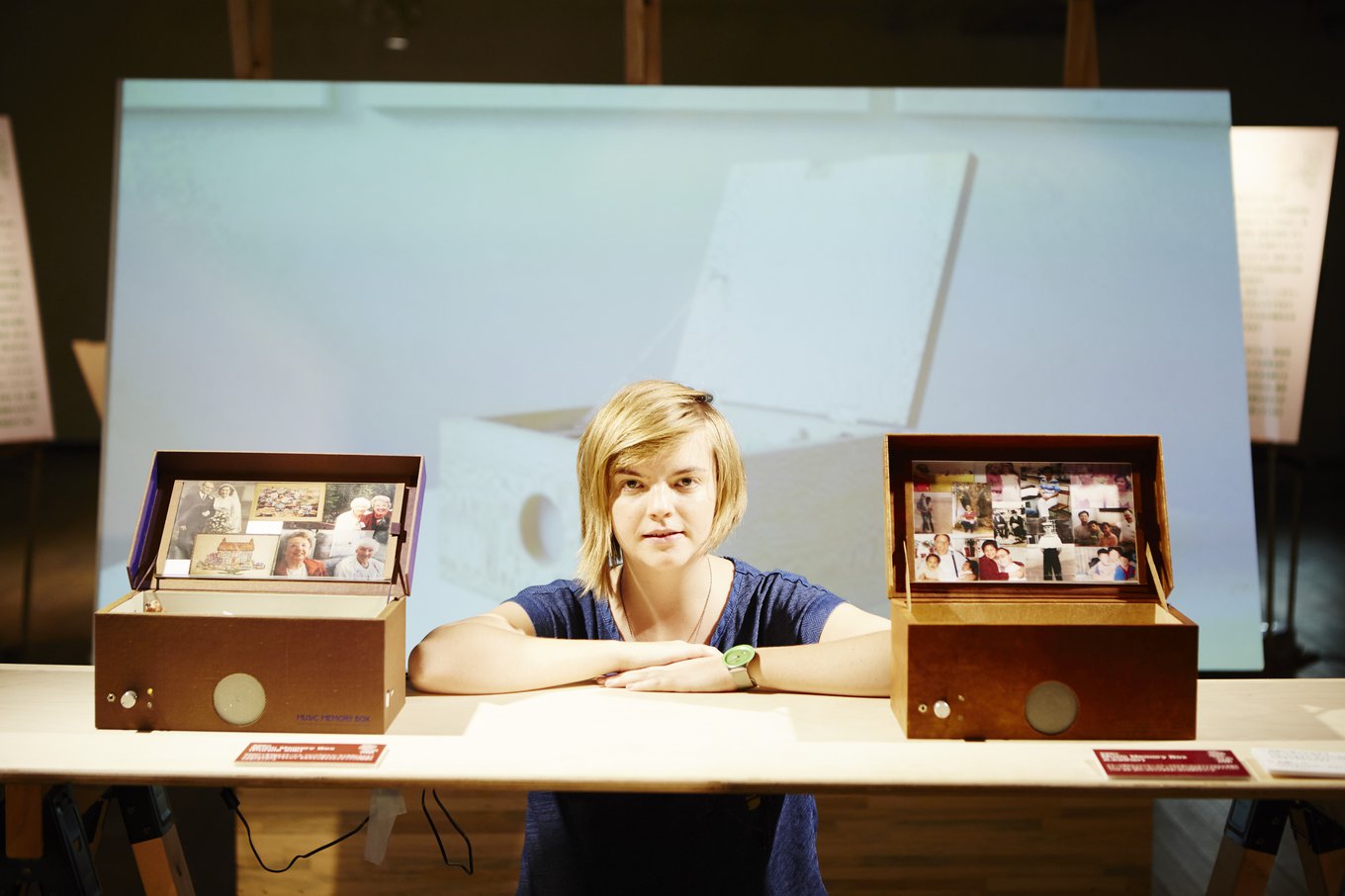Music has the extraordinary capacity to trigger emotions in our brains, something that Chloe Meineck was able to prove since she was a child. Her great-grandmother suffered from dementia and did not recognize her relatives, however, she was able to play the piano and hum the lyrics of several songs. The young Brit remembers, "After listening to music, my great-grandmother could talk about her memories for quite some time." With this idea in mind, this innovative social designer founded Studio Meineck, a project to create technological products that address mental health issues. Thanks to this initiative, this young woman has become one of the winners of Innovators Under 35 Europe from MIT Technology Review.
Dementia is already the most widespread disease in the world: 47.6 million people suffer from it and the number of patients is expected to double in the next 20 years. As a matter of fact, the World Health Organization has already described it as the epidemic of the 21st century. According to the agency, one of the main reasons for this is due to the increase in life expectancy: the older we are, the more likely we are to suffer from this disease. Alzheimer's is the most common types of dementia, and there is still no cure in sight. For this reason, products and services aimed at the well-being of these people are essential so that their daily lives are less difficult.
Promoting the quality of life of patients and the peace of mind of their families is one of Meineck's main objectives. Motivated by her personal history, the young woman began to develop Music Memory Box once she finished her university studies. It consists of a handmade wooden box containing nostalgic objects such as photos, key rings and user toys. These items incorporate RFID stickers that play a song when users place one of them in the middle of the box.
In this way, the box functions as a multi-sensorial and interactive device. It also features a storage system for families and caregivers to add new music via USB devices and attach it to different objects. Meineck has already developed a pilot of this product and it has been clinically used to reduce patients' state of confusion and anxiety as well as improve their communication skills and sense of identity.
"Family members have confirmed that patients feel less frustrated after using this box and caregivers say the device makes their jobs easier," Meineck says. She adds that people with dementia, family members, caregivers, music therapists, and neuroscientists have all been involved in the development of the product.
The Music Memory Box is simple and customizable for each user, even for people with advanced dementia. According to Meineck, this is the main difference between this project and other similar ones in the market. "Most of today's devices are used in groups, however, in order for these products to be more effective and allow users to remember, they have to be customized," she says.
The innovator has led the development of the first prototype. Now, her goal is to create a platform to share her work with the world and access funding for Music Memory Box to establish itself in the market. The project´s mission is not only to treat dementia, but also to be used for children with different traumas as well as with people with depression. So far, this solution has already been a finalist in the National Dementia Care Awards in the United Kingdom and has participated in the Alzheimer's Society Accelerator Programme 2019 project.
Paloma Cabello, the Investor and President of The Board of Directors of HGBeyond Materials Science and member of the Innovators Under 35 Europe jury, assures that "Music Memory Box is not so much a technological innovation, but an approach on how to use technology." In the expert's opinion, although the invention "uses technology intelligently, its main drive is that it is able to take into account the emotional side. Thanks to that, it has the opportunity of having a global impact."
By Alba Casilda
Translation: Brian Bostwick




